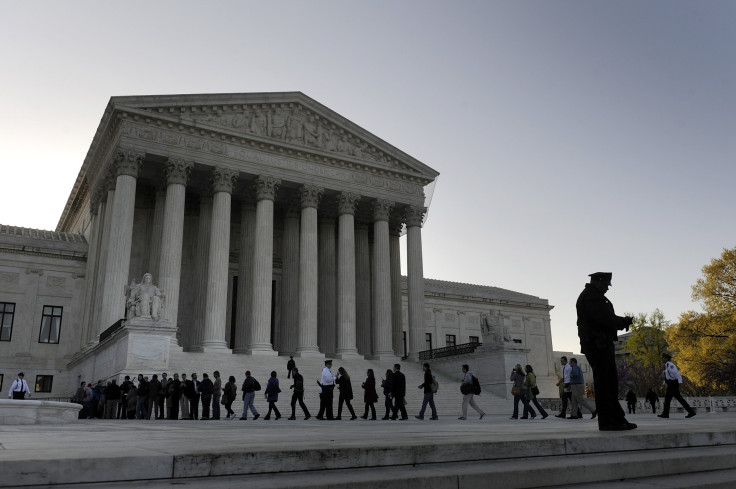Myriad Ruling Impact: How Will Human Gene Patent Decision Affect Biotech Industry and Patients?

A U.S. Supreme Court ruling on human gene patents might make cancer risk screening more affordable -- but more providers of a medical service does not always mean a drop in prices. Some experts also say that smaller biotechnology companies may find themselves in a precarious position thanks to the high court.
On Thursday, the U.S. Supreme Court gutted Myriad Genetics Inc.’s patents on BRCA1 and BRCA2, two genes linked to breast and ovarian cancer. The high court said that while a cDNA sequence -- one where the portions of DNA that do not code for proteins are removed -- is potentially patentable, isolated DNA sequences that are otherwise unaltered are not.
The problem is, many small biotechnology firms have built their houses on a foundation of genomic DNA patents. With those kinds of patent claims now out of the picture, a lot of patent portfolios aside from Myriad’s are left pretty empty. But many biotech firms had already read the tea leaves.
“A lot of these companies have been trying to diversify over the past year when they realized their business model was at risk,” Baker Donelson attorney Susan McBee -- who wrote an amicus brief for Myriad -- said in a phone interview.
Diversification is tricky in a stormy economic climate, though. Securing funds for a company’s main venture is hard enough; trying to capture funding for new directions is even less assured, according to McBee.
Myriad’s opponents argued that the BRCA patents gave the company a monopoly on genetic risk screening for breast cancer, allowing it to charge about $3,000 per test. Insurance coverage can decrease a patient’s out-of-pocket cost for breast cancer risk screening to under $100, but only if a person meets certain family history requirements, which in some cases means multiple close relatives with a diagnosis. Opening up the market to more providers could bring that cost down, so the thinking goes.
In the Myriad decision, "the court struck down a major barrier to patient care and medical innovation," American Civil Liberties Union senior staff attorney Sandra Park said in a statement. "Because of this ruling, patients will have greater access to genetic testing.”
While it might seem like a given that more providers of a service would mean lower prices, that’s not always the case. Myriad spokesman Ron Rogers pointed out that there are numerous providers of genetic tests for Lynch syndrome, a form of colorectal cancer, but the cost of the test remains high -- even higher than Myriad’s breast cancer test.
With so many providers, “there’s no incentive to own the market, and there’s no one going out there to invest resources to educate doctors and patients,” Rogers said in a phone interview before the Supreme Court ruling was issued.
Even if the Myriad ruling does lower the costs of breast cancer risk screening, some experts worry that the effect on small biotech firms could stymie research into other illnesses. A company might bring millions of dollars to bear in trying to isolate a gene thought to be linked with some disease. Myriad and other biotech firms have argued that without the patent protection to keep other companies from leaping onto newly isolated disease genes, there’s no incentive to create those tests.
“From a long-term standpoint, what you’re going to see is fewer tests coming out, precisely because [the companies] have no guarantees to shareholders that they can recoup their investment,” Bryan Jones, another Baker Donelson attorney and co-author of the Myriad amicus brief, said in a phone interview.
The biotech industry may still have an option aside from the courts, Jones says: Congress. If the legislature was to further clarify what constitutes patentable subject matter, that could be one avenue to reopening a window shut by the Supreme Court.
Some experts were more sanguine about the potential ripples spreading from the high court's decision.
"The decision is actually not too disruptive for the industry, as it leaves open many ways for companies to build patent exclusivity around manipulated nucleic acids, methods of using even naturally occurring nucleic acids, etc.," Cooley LLP patent lawyer Michael S. Tuscan said in an emailed statement. "Much of what this decision pertains to is research and discoveries that took place more than 10 years ago, not what is generally new to the life sciences industry in this day and age.”
© Copyright IBTimes 2024. All rights reserved.











